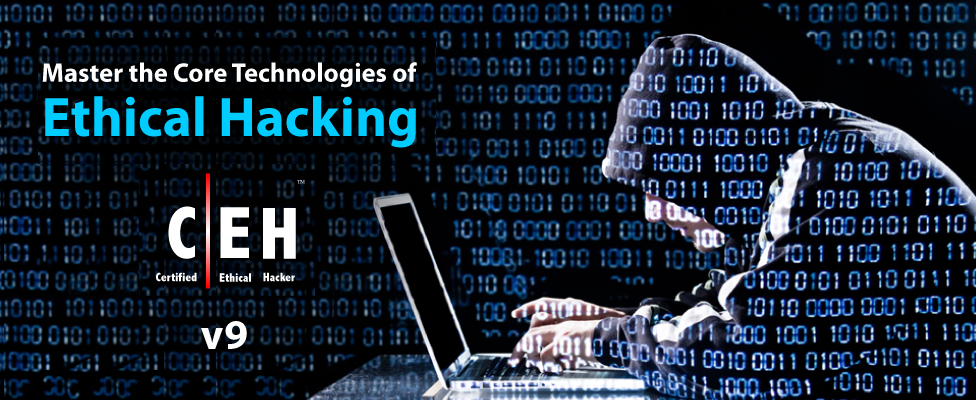About CEH

Certified Ethical Hackers use the knowledge and tools of malicious attackers to uncover vulnerabilities in an organization’s computer systems. Upon assessing the target system’s security posture, a CEH performs the indicated preventive, corrective and protective measures to safeguard the system before an actual breach can occur. CEH certification is vendor-neutral, so certified ethical hackers can protect a wide range of systems, regardless of make.
The CEH certificate is EC-Council’s most popular and sought-after credential. Typical job titles for CEH-certified professionals include penetration tester, network security specialist, ethical hacker, security consultant, site administrator and auditor. Beyond the significant corporate job opportunities, becoming CEH certified opens the door to lucrative security positions in the government IT sector, as the CEH is endorsed and used by the National Security Agency (NSA), the Committee on National Security Systems (CNSS) and the Department of Defense (DoD) as a benchmark to clear personnel and contractors with privileged access to sensitive information.
Universities, colleges and private computer schools offer courses and degrees featuring CEH certification prep and training programs that align with EC-Council’s Certified Ethical Hacker curriculum. Compare some of the top-rated CEH training programs in the U.S. and online below.
Course Description:
The Certified Ethical Hacker course through CyberSecurity Academy will help you to stop hackers by learning to think like one. This class immerses students in an interactive environment where they will scan, test, hack, and secure their own systems. CEH candidates will learn how intruders escalate privileges and what steps can be taken to secure a system. Also covered will be Intrusion Detection, Policy Creation, Social Engineering, DDoS Attacks, Buffer Overflows and Virus Creation. All students will leave the class with a detailed plan on conducting vulnerability assessments and penetration tests.
Arguably the CEH is the most popular information security related certification today, and is part of the DoD 8570 Directive.
Certification:
The CEH 312-50 exam will be conducted on the last day of training. Students need to pass the online Prometric exam to receive the CEH certification. The certification test is included in your tuition, and you will receive access to CyberSecurity Academy’s certification test preparation materials after enrolling at no additional cost.
Course Highlights
Security breaches can come from anywhere. Competitors,spies,rogue employees,bored teens and even hackers are invading computers everywhere to make trouble,steal information and even sabotage careers.And with the growth of the internet and World Wide web,such actions become even easier. Server crashes,email loss,data loss,virus invasions,and other problems often go unexplained and network downtime eats up precious resources of time and money. How can these breaches be prevented? By knowing what to look for.The best way to beat a cyber criminal is to think like them to know what types of attacks they make,and how you can guard against them.
What is New in CEHV9 Course
This is the world’s most advanced ethical hacking course with 18 of the most current security domains any ethical hacker will ever want to know when they are planning to beef up the information security posture of their organization. In 18 comprehensive modules, the course covers 270 attack technologies, commonly used by hackers.
Learning Objectives:
The course showcases the tools required to be an Ethical Hacker. The Instructor will lead the class through proof of concept and finish on how to use the tools successfully in an attack. When a student leaves this intensive 5 day class they will have hands on understanding and experience in Ethical Hacking.
MODULES
- Introduction to Ethical Hacking
- Foot Printing & Reconnaissance
- Scanning Networks
- Enumeration
- System Hacking
- Trojans & Backdoors
- Viruses & Worms
- Sniffers
- Social Engineering
- Denial of Service
- Session Hijacking
- Hijacking Web servers
- Hacking Web Applications
- SQL Injection
- Hacking Wireless Networks
- Evading IDS, Firewalls & Honey pots
- Buffer Overflow
- Cryptography
- Penetration Testing
Click here to Apply for Certification Courses
